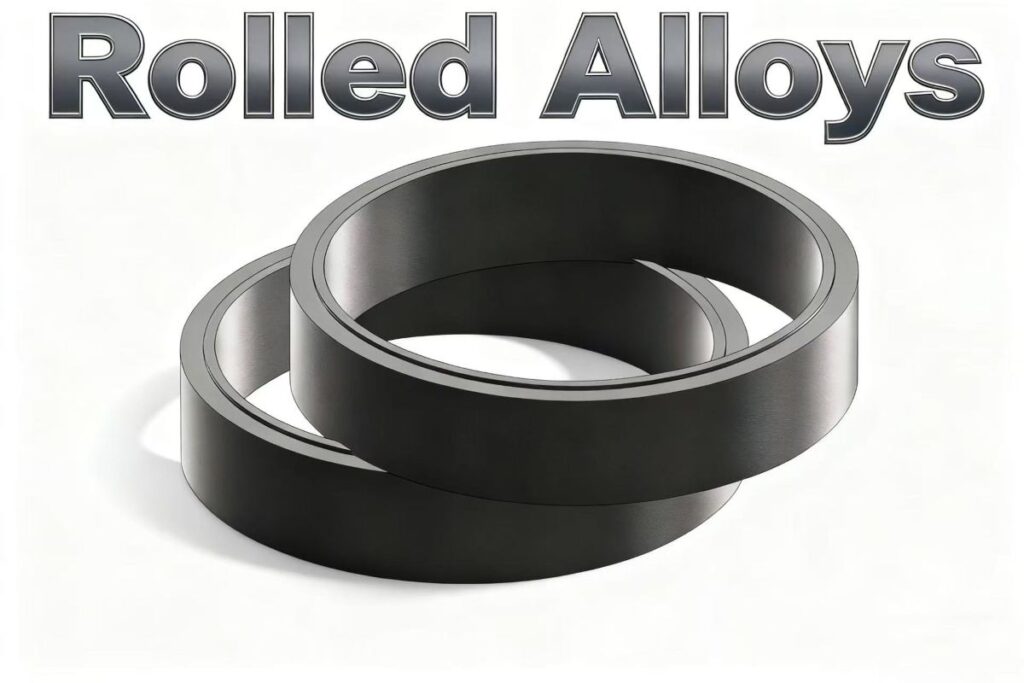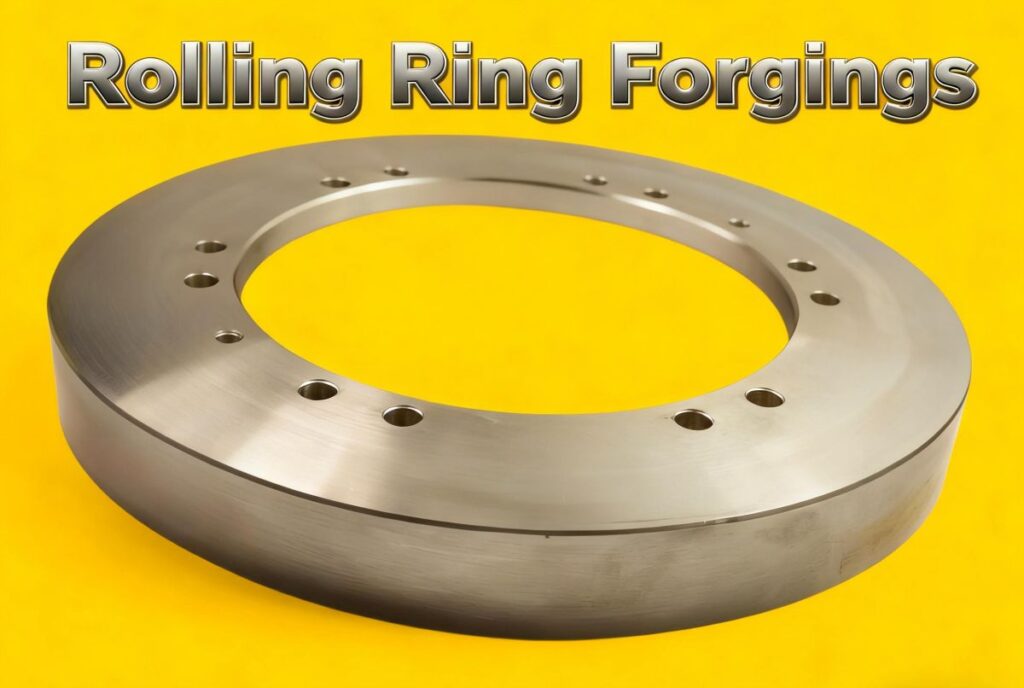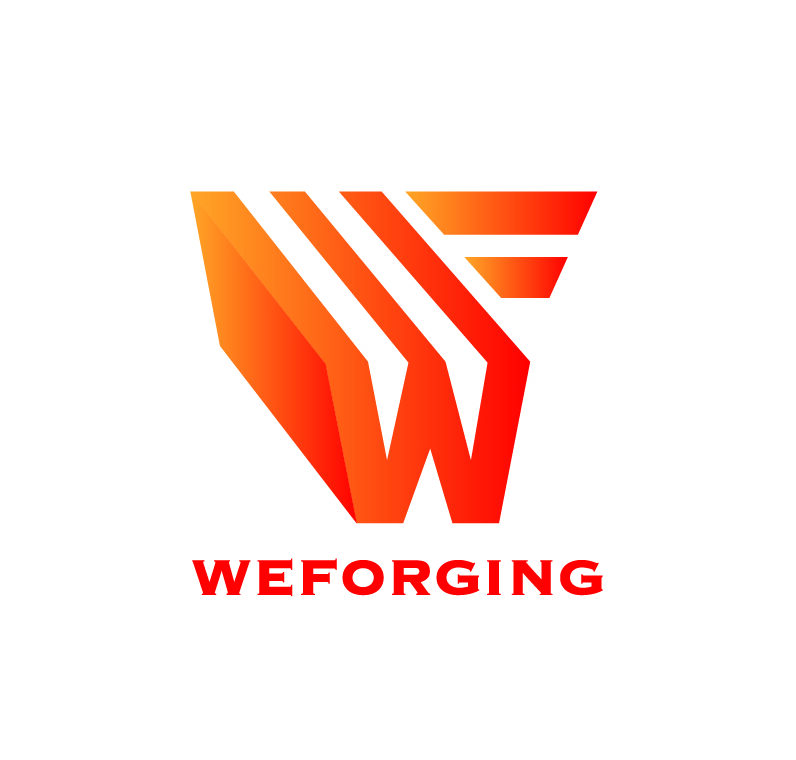High-Strength Rolled Alloys Forging
Rolled alloys are essential in producing high-performance components for modern industries such as energy, heavy machinery, and construction. Through rolled ring forging, these materials achieve refined grain flow, exceptional fatigue resistance, and dimensional stability. Compared with cast alloys, seamless rolled rings provide greater structural integrity and uniform mechanical strength. At Weforging, we integrate forging, CNC machining, heat treatment, and testing into a unified production system. Each forged alloy component is manufactured under strict process control to ensure accuracy, reliability.

What Are Rolled Alloys?
Rolled alloys refer to steels and specialty metals shaped through controlled deformation during the rolling process. This method enhances strength and refines internal grain flow, making them ideal for high-load and high-temperature environments. Compared with conventional cast or hot-rolled materials, rolled alloys provide better microstructural uniformity and improved mechanical stability. They are commonly produced from carbon steel, alloy steel, stainless steel, and nickel-based alloys.These materials make them ideal for industries that require precision and long-term durability.
The Ring Rolling Forging Process
- Billet Preparation — Select and cut alloy billets with consistent composition and size.
- Heating — Heat billets between 1050°C and 1250°C to achieve ideal forging plasticity.
- Punching — Pierce the billet center to create a donut-shaped blank for ring rolling.
- Ring Rolling — Expand the blank between rollers, refining the grain structure and forming seamless rolled rings.
- Heat Treatment — Normalize, quench, and temper to improve mechanical properties and fatigue resistance.
- CNC Machining & Inspection — Final machining and ultrasonic, hardness, and dimensional testing ensure precision and traceability.
Our ring forging process ensures uniform deformation, eliminating defects common in cast alloys.
Advantages of Rolled Alloys
Superior Structural Integrity
Rolled alloys produced through ring rolling forging feature a refined and continuous grain flow that follows the ring’s contour. This structure improves fatigue strength, impact resistance, and reliability.It makes them ideal for high-load components such as turbines, gear rings, and couplings.
Dimensional Precision & Consistency
Controlled rolling deformation ensures uniform wall thickness, stable geometry, and excellent roundness. Compared with other forging methods, rolled rings achieve tighter tolerances and smoother surfaces.It can also minimizing secondary machining requirements.
Production Efficiency & Material Utilization
Rolled alloys deliver high material efficiency through near-net shaping, reducing waste and machining time. This makes them well-suited for both prototype production and large-scale OEM manufacturing, ensuring consistency and cost efficiency.
Thermal Stability & Longevity
Their dense, defect-free microstructure maintains stability under thermal cycling and heavy loads. Combined with Weforging’s heat treatment and process control, rolled alloys achieve extended service life and lower maintenance requirements.
Rolled Alloys Applications
Rolled alloys and forged steel rings are essential across multiple industrial sectors where strength, stability, and precision are critical.
At Weforging, our rolled alloy forgings support demanding mechanical systems that operate under high loads, variable pressures, and continuous dynamic stress.
- Energy & Power Generation — Rolled alloy rings are used in turbine assemblies, generator shafts, and couplings, ensuring consistent power transmission and heat resistance in steam and gas turbine systems.
- Heavy Machinery &Mining Equipment — High-strength gear rings, bearing races, and transmission flanges deliver durability and wear resistance for excavators, loaders, and rolling mills.
- Oil & Gas Industry — Forged rings and flanges made from alloy steels provide excellent pressure retention and corrosion protection for valves, pumps, and pipeline systems used in refineries and offshore platforms.
- Wind Power Systems — Large seamless rolled rings are applied in wind turbine hubs, yaw bearings, and main shafts, ensuring balance and fatigue strength under variable wind loads.
- Construction & Hydraulic Equipment— Precision forged cylinder rings and couplings are used in cranes, presses, and hydraulic actuators, providing structural rigidity and long service life in continuous operation.
Rolled Ring Forging vs Other Forging Methods
Rolled ring forging differs fromopen die forging, closed die forging, and upset forging in both forming mechanics and performance outcomes. Unlike open die forging, which is best suited for larger, less defined shapes, ring rolling produces precise circular components with uniform grain flow and reduced machining. Compared to closed die forging, which relies on enclosed dies to form complex geometries, ring rolling achieves continuous grain alignment without flash or excessive material loss. It is also more efficient for medium-to-large diameter parts that require consistent wall thickness and rotational balance.
At Weforging, we apply each forging method—rolled ring, closed die, or open die—based on material type and customer requirements.This approach ensures the most efficient and precise process for every component.

Conclusion & Contact
Rolled alloys represent the foundation of high-performance engineering components — combining exceptional strength, fatigue resistance, and dimensional precision. Through advanced rolled ring forging, Weforging transforms premium alloy materials into seamless rings and precision-forged parts that meet the demands of energy, heavy machinery, and industrial power systems. Our integrated “forging + machining + testing” process ensures full traceability, stable quality, and global OEM compatibility.
If your project requires custom rolled alloy forgings, our engineering team is ready to assist with design optimization, material selection, and prototype validation.
Upload your 2D/3D drawings (PDF, DWG, STEP) or contact us directly for a detailed quotation.
F.A.Q.
Rolled ring forging is ideal for carbon steel, alloy steel, stainless steel, and nickel-based alloys. The selection depends on load conditions, temperature range, and desired mechanical performance.
Ring rolling maintains continuous grain flow and eliminates flash waste, achieving superior strength, geometry, and material efficiency.
Yes, we support custom diameters, wall thickness, and full heat treatment cycles to meet client-specific engineering standards.

